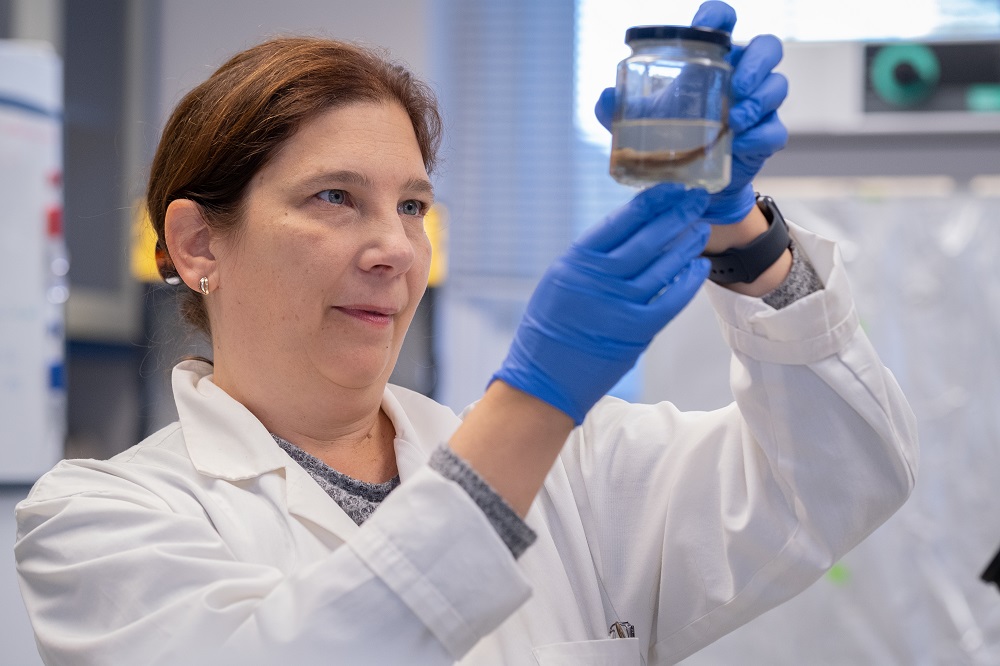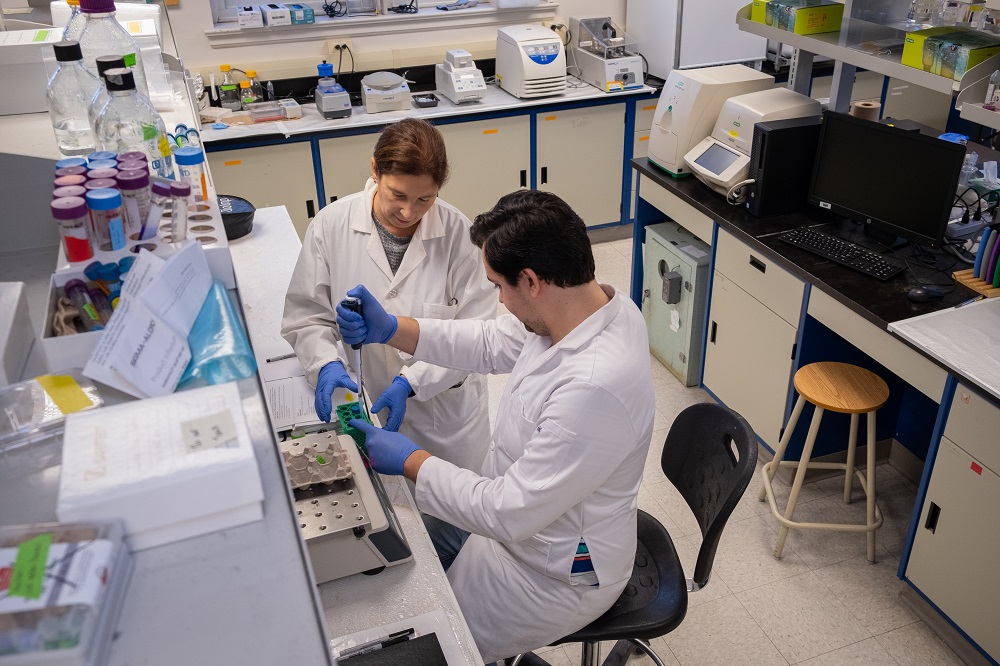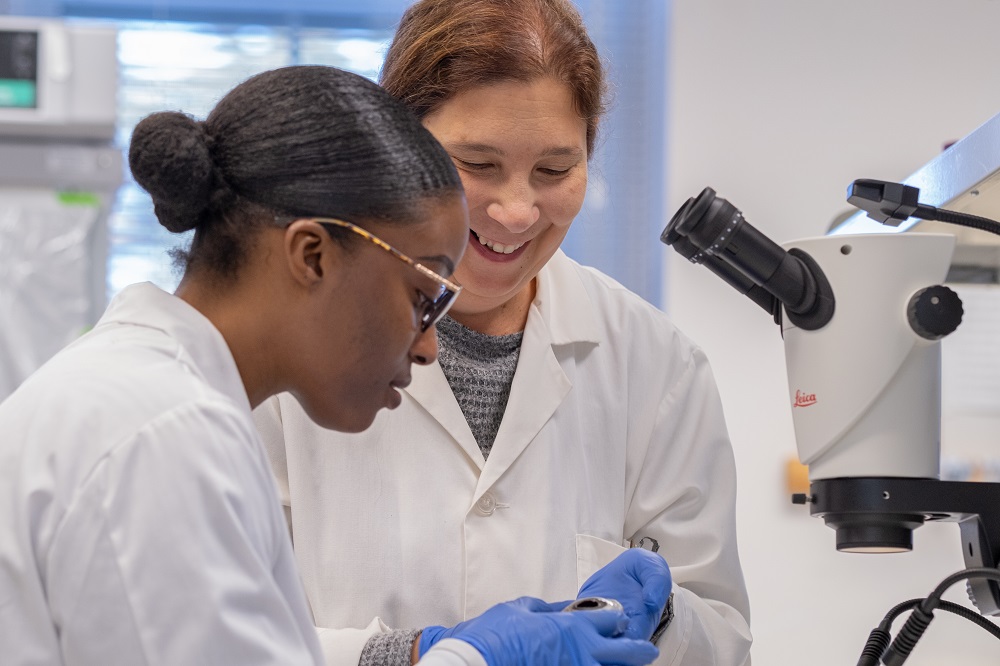Dr. Tamara Franz-Odendaal
Professor of Biology

Dr. Tamara Franz-Odendaal was drawn to study Biology because she has always been fascinated with organisms around her, and the diversity of animal species. Now an Evolutionary Developmental Biologist with expertise in skeletal biology, her research brings greater understanding of that diversity.
With her background spanning the fields of morphology and developmental biology, her experience brings a breadth of knowledge from a variety of diverse experiences. From working in a pharmaceutical lab, a human genetics lab where she analyzed blood samples to track disease, to digging up fossils in Africa, she seeks to expand our understanding of life around us.
“Before you can understand underlying mechanisms underlying a congenital disease, you need to understand how structures normally develop,” said Dr. Franz-Odendaal.

Dr Franz-Odendaal conducts both fundamental and applied research. In her fundamental research, she seeks to understand the evolution and development of particular bones found in the eyes of many animals, particularly birds.
These bones have a long fossil history making them particularly interesting to study. In her more applied research, funded by the Canadian Space Agency and Research Nova Scotia, Dr. Franz-Odendaal is studying how simulated microgravity and vibrations can lead to changes in bone homeostasis. Using a small aquarium fish, the zebrafish, her team delves into the intricacies of signaling and communication between bone cells.
Her previous research has included working with a plastic surgeon at the IWK Children’s hospital in Halifax, Nova Scotia to try and understand how drugs affect development of the skull roof during growth.
Dr. Franz-Odendaal has also worked with aquaculture companies to diagnose issues with their fish species. “Skeletal research can solve problems relating to mechanical or physical forces that impact the skeleton as well as environmental toxins, both of which can have effects on growth and development of fish,” she said.
Along with her research, Dr. Franz-Odendaal is proud to be a role model young women and early career scientists. She was a past recipient of one of five Natural Science and Engineering Research Council of Canada (NSERC) Chairs for Women in Science and Engineering in Canada positions. She is a past recipient of the Professional of Distinction Award from the Discovery Centre as well as the Mounts’ Research Excellence Award and the Mount’s Diversity and Inclusion Leadership Award.
Dr. Franz-Odendaal is a full professor at Mount Saint Vincent University and is an Adjunct Professor at Dalhousie University (Faculty of Medicine) and Saint Mary’s University (Faculty of Science). She has received funding from NSERC, Canadian Foundation for Innovation, Research Nova Scotia Research Nova Scotia, Canadian Space Agency, and the Lung Association of Nova Scotia and Prince Edward Island.

Learn about the Franz-Odendaal Bone Development Lab: http://www.bonedevelopmentlab.ca/
Visit Dr. Franz-Odendaal’s Faculty Profile